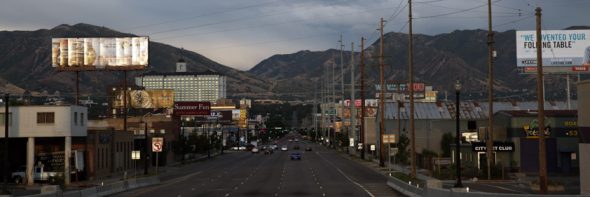
Note: We apologize in the delay in getting up this post. If you look at our map, you can see this leg of our trip is making us do 8+ hours of driving a day. But we’ll try our hardest to get these stories to you guys in a timely fashion.
By Aman Ali
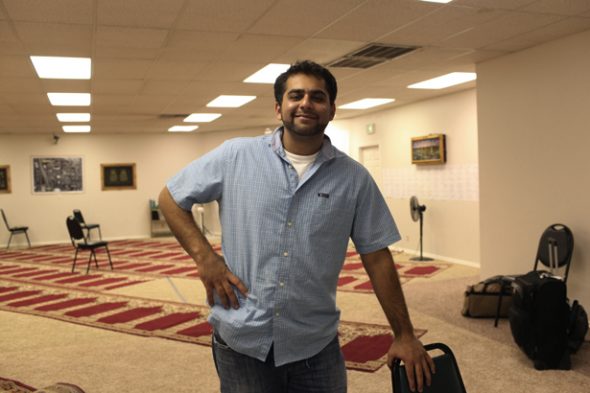
Faraz has been married to a Mormon woman for a little over a month. But he has known his wife Erika for almost 10 years so I asked him the reasoning behind why it took a decade to tie the knot.
“That’s because it took some time to convince her family,” he said with a chuckle.
Enter Utah, where roughly 62 percent of the people here follow The Church of Jesus Christ of Latter Day Saints. It’s a Christian church followed by the Mormons who believe after Jesus, a man by the name of Joseph Smith was also given a book of revelation from God in the 1800s in upstate New York.
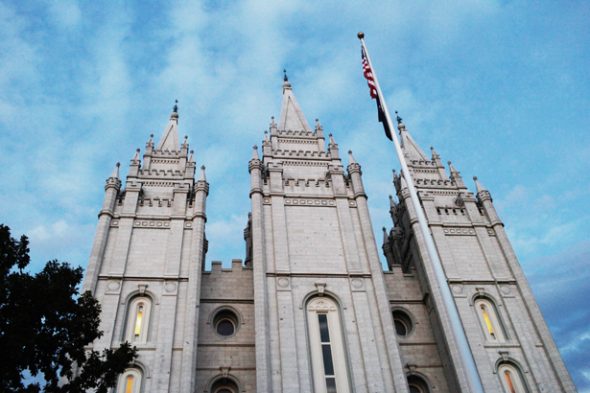
Faraz spent most of his life in Utah and easily stood out in school as not just the only Muslim in school, but only minority.
“In middle school, here I was, this big 5’10 Pakistani dude in Salt Lake City,” he said laughing again.
Faraz is a brawny guy who speaks with an intriguing twang. He’s the kind of person who likes to strike up a conversation with anyone. We met him at the Utah Islamic Center, a mosque inside of a shopping center in the Salt Lake City area that’s home to a few dozen families who congregate here. Bassam and I didn’t know a lot about the Muslim community in Utah prior to arriving and Faraz graciously helped us out getting us connected to the people we should meet before leaving.
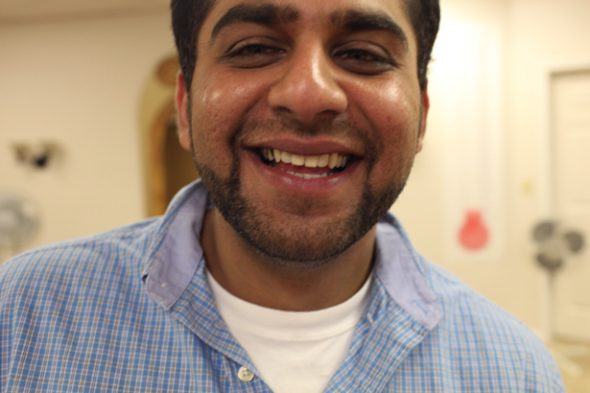
Salt Lake City is a growing community with over 20,000 Muslims. Muslims first began coming here in waves in the early 1980s and now the city has a significant population of Muslim refugees that have recently come from places like Burma, Bosnia and Somalia. But from what I understand, there aren’t as many Muslim women here as Muslim men. It’s not an uncommon sight for Muslim men to have Mormon wives, considering how many Mormon women there are instead of Muslim ones.
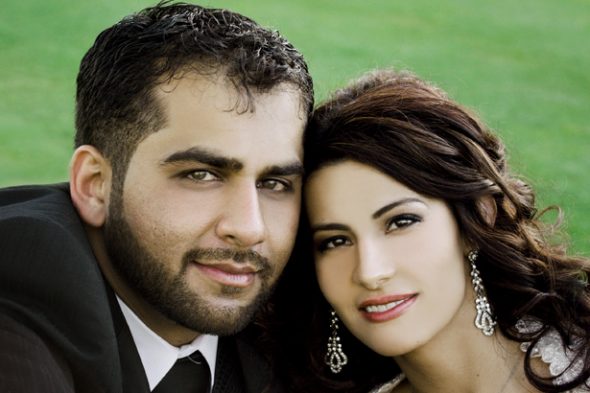
Islam doesn’t prohibit Muslim men from marrying Christian women, but many cultures that follow Islam see it as some kind of unwritten taboo (in my opinion). Faraz doesn’t want to sensationalize the adversity the Muslim community here gave him for marrying a non-Muslim white woman, but it was definitely there to some extent.
“I’d show up to Friday prayer and I’d never see any of my friends anymore,” he said. “I’d want to hang out and everyone said they were busy. I guess we’ve all been too busy for each other lately.”
Faraz said his wife isn’t a strict Mormon but it took her mother and stepfather an extensive amount of time to warm up to him, not because of who he was personally, but were understandably concerned that his wife would lose her Mormon identity.
“There are many things I disagree with about the Mormon way of life and I’ve made it very clear to her that I would like her to someday convert,” he said. “We’ve also agreed that our children will be raised Muslim. Things like that, you need to agree upon those things beforehand otherwise they can become problems down the road.”
But what made it easy through the years was Faraz’s family was always on his side. Before getting engaged, Faraz made the Hajj pilgrimage to Saudi Arabia with his family. There, his father asked him to pray to Allah if Erika was meant for him. Months later, he got married.
Faraz said it might have been a little awkward at the wedding, everyone enjoyed themselves. But he takes his entire journey in stride, because at the end of the day, there is still plenty of love all around both families. He said his mom and Erika have begun to bond over cooking. Erika, he said, is quickly becoming an expert at South Asian cuisine.
The Mormons
Faraz tells us that Salt Lake City is home to the Mormon’s most holy temple so we decide to check out the place. It’s a colossal complex where many Mormons from all over the world come to volunteer their time as missionaries. Across the street from it is the church’s just as impressive looking conference center.
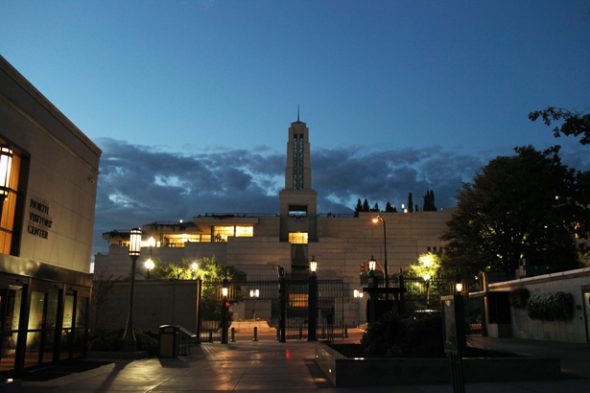
We were greeted at the temple’s entrance by Sisters Todd (from Pennyslvania), Sister Han (from China) and Sister Aslam (from Pakistan). On their own dime, they traveled to Salt Lake City to volunteer for the church and welcome tourists like us checking out the temple. Each of them were happy-go-lucky missionaries eager to tell us more about their religion and learn about our 30 Mosques project too. But our conversation came to a close when two church security officers asked Bassam to delete all the pictures of the missionaries from his camera.
At first, I thought about how amusing it was that this is the second time on this trip that we’ve been basically kicked out of a place of worship. But it made me think more so about the fact that Bassam and I need to be more sensitive to people during the places we visit. I don’t know what the reasons why the security guards asked us to delete the photos, but I’m sure it had a lot to do out of respectful concerns for the church’s women. We Muslims would (and should!) have similar concerns if some random stranger started furiously snapping pictures of our women. Not because women are incapable of handling themselves, but we as Muslim men need to demand our women always be respected.
I don’t know any Muslims that would drop everything they’re doing to fly across the globe to welcome people to the holy Kabah in Saudi Arabia. But these Mormons have demonstrated it’s definitely possible for the human body to be capable of loving their religion this much. It makes me wonder, about myself most importantly, why we don’t have the same kind of love for Islam.